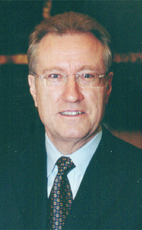Mr. Chairman, with respect to the matter raised previously, in some cases we use the private sector to complement our own resources. We have been doing this in Bosnia for some of our stretched occupations. We have been able to provide private sector support services in Bosnia for things like cooking and cleaning. That is a further response to the previous question.
Regarding the current question, in the last year we have added $40 million in equipment purchases. We are increasing the percentage with respect to capital. With respect to the Sea Kings, as I said before, our people will not be flying anything that is not safe. We have put some $75 million into improving and upgrading the avionics and other parts of the Sea King. It has been performing exceedingly well. We have quite a number of them in the Arabian Sea. They have been performing exceeding well there because they are kept in good condition. We would not allow our people to fly anything that was unsafe.
However we need to get on with replacing them. We need new equipment with new capabilities for modern needs. As I indicated before, the process is in place and moving along. Yes, I wish it was faster but by the end of the year we will be in a position to name the helicopter that will replace the Sea King.
We are trying to make sure the process is conducted fairly and that we can keep it competitive. We have gone through various discussions with the proponents as to the technical specifications that flow out of the statement of requirements. They have been continually asking us for information about them and this takes time. However I think we would all agree we want to be fair to all the competitors so we can get the best helicopter to replace the Sea King. Meanwhile the Sea King will continue to do terrific service for us.

